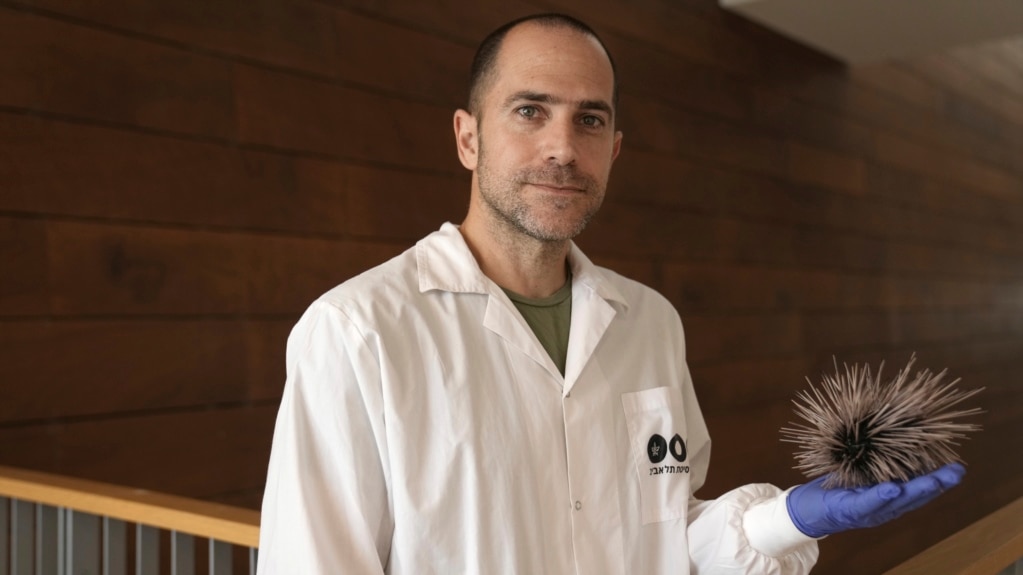Researchers said recently that sea urchins in Israel’s Gulf of Eilat have been dying off at a concerning rate. A sea urchin is a small sea animal that lives on the ocean floor and is covered in sharp points.
The development in the gulf, also known as the Gulf of Aqaba, threatens the Red Sea’s prized coral reef ecosystem. An ecosystem is everything that exists in an environment.
Tel Aviv University scientists say an unknown pathogen is killing off the black sea urchin, scientifically known as Diadema setosum. The scientists said the massive die-off first began in the eastern Mediterranean Sea. From there, it has spread to the neighboring Red Sea.
The black sea urchin is very important to keeping a healthy reef ecosystem. Without them, small plants called algae grow unchecked. That can suppress and kill corals and compromise the balance of the reef ecosystem.
A paper including the findings was published in the Royal Society Open Science.
“It’s a fast and violent death: within just two days a healthy sea urchin becomes a skeleton with massive tissue loss,” said Oren Bronstein. He is a biologist at Tel Aviv University and lead writer on several papers on sea urchin deaths.
He added that they have ruled out localized poisoning or pollution. They instead suspect a quickly spreading epidemic caused by an as-yet-unidentified pathogen.
Last month, researchers in the United States identified a single-celled parasite responsible for a similar mass die-off of sea urchins in the Caribbean. It destroyed reef ecosystems there.
The Israeli researchers believe a similar pathogen might also be responsible for killing sea urchins in the Mediterranean and the Red Sea. They have called for urgent action by the Nature and Park Authority to protect Israel’s already endangered reef ecosystems.
Ian Hewson is a professor at Cornell University’s Marine Mass Mortality Lab who was not involved in the Tel Aviv University study. He said this new outbreak of disease is a deep concern.
He added that it “would be interesting to know if the same agent is at work” in the Mediterranean as has been identified killing sea urchins in the Caribbean. And he said if that is the case, it will raise questions about how the disease traveled between organisms in such distant sites.
The Gulf of Eilat is a part of the Red Sea surrounded by Israel, Jordan, Egypt and Saudi Arabia. It is home to coral reefs that scientists believe might be more resistant to warming waters resulting from human-caused climate change.
I’m Gregory Stachel.

